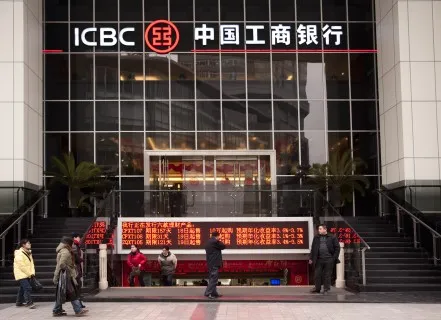
Deposit cap removal a bellwether for full interest-rate liberalisation in China
Chinese banks will remain highly influenced by policy directives.
The removal of the cap on Chinese banks' deposit rates reinforces the authorities' commitment towards financial reform, but will have no meaningful impact on deposit rates in the near term, says Fitch Ratings. The bigger impact on net interest margins will come from the sixth consecutive 25bp rate cut since November 2014 - also announced Friday by the People's Bank of China (PBOC) - while reductions in the reserve requirement ratio can only partially mitigate profitability pressures.
Here's more from Fitch Ratings:
The deposit cap removal is unlikely to have a significant effect on banks' deposit pricing strategies because the banks already offer rates below the previous cap of 1.5x on the benchmark deposit rate. Most banks offer rates at 1.1x-1.2x, and few are offering in excess of 1.3x. The pricing is on average 1.4x the benchmark deposit rate across different tenors, even for large-denomination negotiable certificates of deposits introduced in June 2015 (which are not subject to any pricing restrictions).
The deposit cap removal signals full interest-rate liberalisation, but we believe Chinese banks will remain highly influenced by policy directives - and may still be subject to regulatory guidance over deposit pricing, when required, to avoid excessive competition. The PBOC says it will continue to publish benchmark lending and deposit rates for some time, to serve as a reference point to market participants. The banks are still likely to set their interest rates against the PBOC benchmark rates in the near term.
Net interest margin (NIM) pressures are intensifying for Chinese banks as the series of rate cuts takes its toll. The one-year lending rate has fallen 165bp to 4.35% since the easing began. The potential margin squeeze for the sector could be significant and will continue to filter through into 2016 as loans are repriced, some with a longer lag time.
With nearly three-quarters of operating income driven by net interest income, this would heap further pressure on the sector's profitability, which is already under stress from weakening asset quality and suppressed revenue growth as the economy slows. Muted profit growth, or even profit declines, would not be a surprise in light of the overall macroeconomic outlook.
The PBOC also lowered the reserve requirement ratio (RRR) by 50bp to 17.5% for the big banks. It is now 4pp off from the peak. This could help mitigate NIM contraction and ease some pressure on the banks, but is unlikely to reverse the subdued earnings trends in the short term, even with further RRR cuts. Fitch estimates every 50bp reduction in RRR releases around CNY670bn of liquidity, but the earnings boost to banks is less than 1% on average.
Greater financial liberalisation is a positive market development, but we hold to our view that Chinese banks may still be bounded by regulatory guidance, and the banks may be called upon to support the economy when required.
The authorities have cut rates, reduced RRRs, and removed the 75% statutory limit on loan/deposit ratios in part to help boost economic growth. A return to broad-based, rapid lending growth would be credit negative for the banks, in light of the highly leveraged system, though another major credit boom seems less likely - given the capitalisation pressures facing the banks.






![Lorem Ipsum [ABF 1]](https://cmg-qa.s3.ap-southeast-1.amazonaws.com/s3fs-public/styles/exclusive_featured_article/public/2025-03/a_hand_pointing_to_a_futuristic_technology_5b87c9d0e3_1.png.webp?itok=2w0y1WhS)


![Cross Domain [Manu + SBR + ABF + ABR + FMCG + HBR + ]](https://cmg-qa.s3.ap-southeast-1.amazonaws.com/s3fs-public/styles/exclusive_featured_article/public/2025-01/earth-3537401_1920_4.jpg.webp?itok=WaRpTJwE)








 Advertise
Advertise

